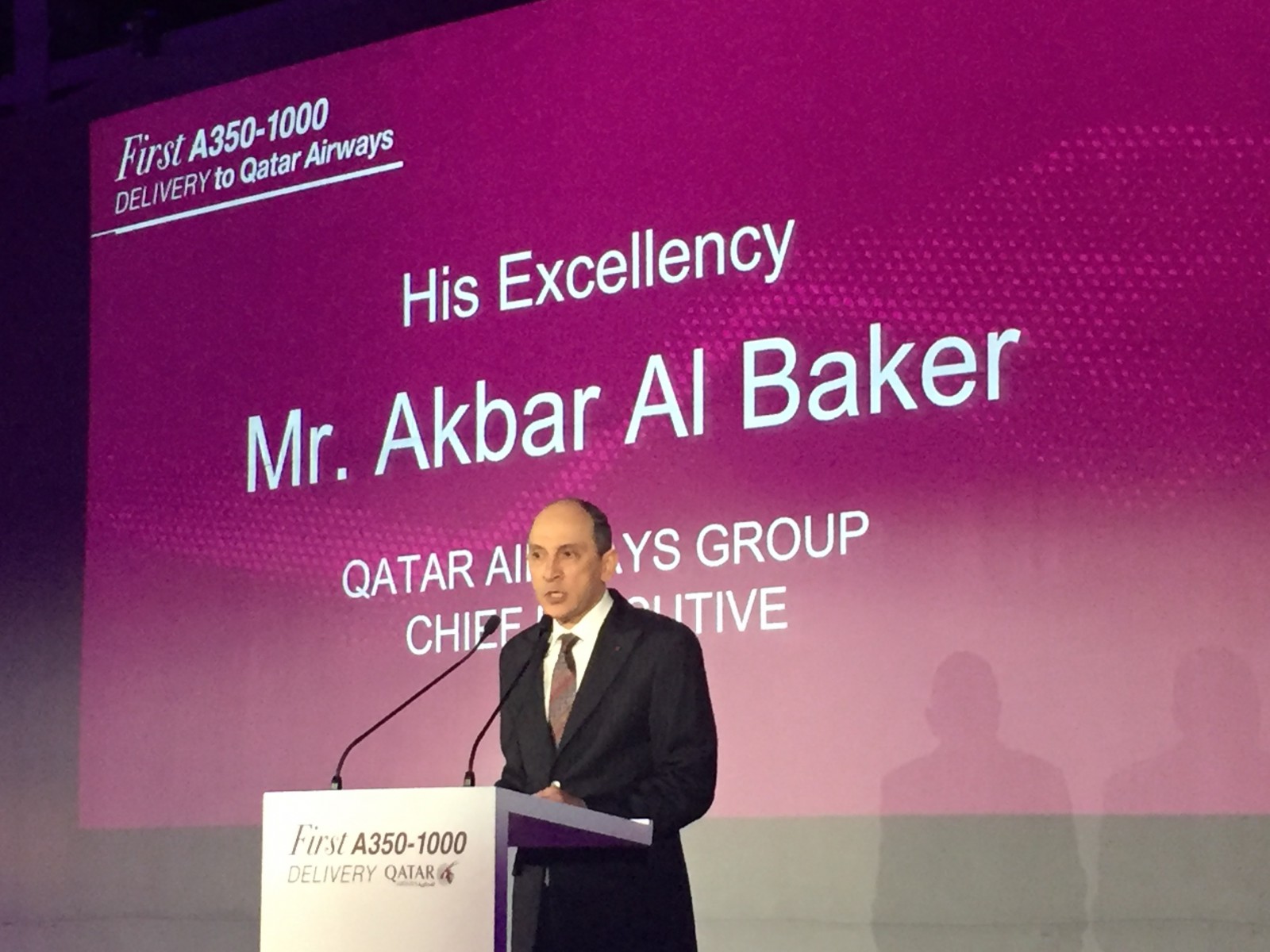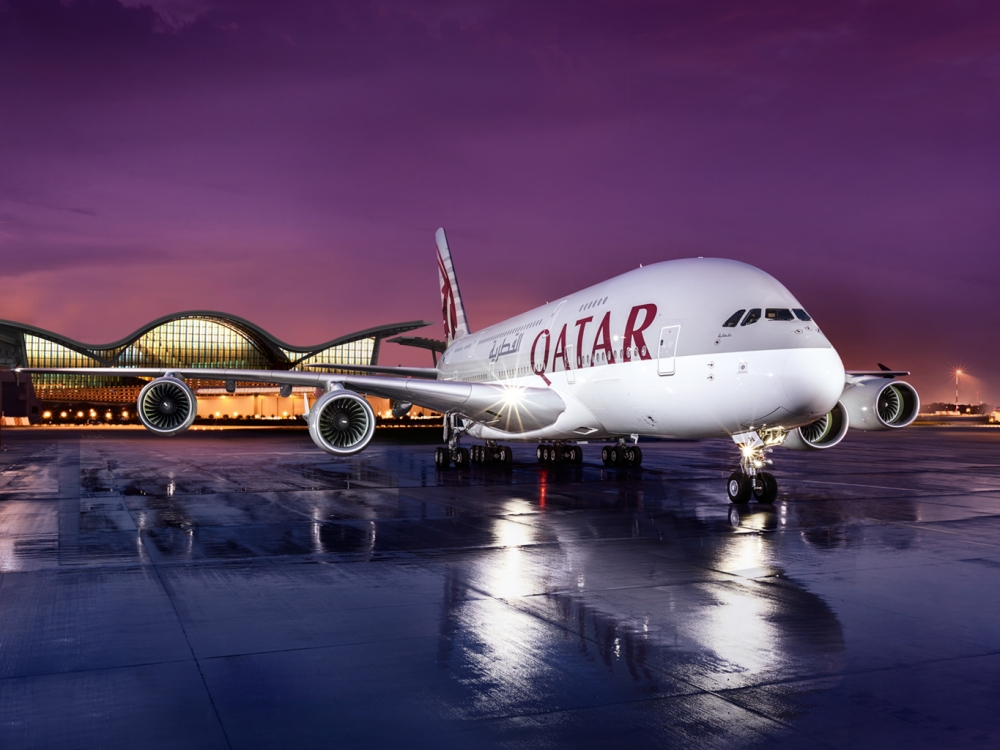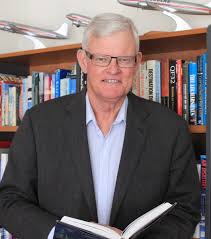Why the Airbus A380 has failed the airlines
06 February, 2019
4 min read
By joining our newsletter, you agree to our Privacy Policy


Perfect aircraft but too heavy is the verdict on the A380 superjumbo from outspoken Qatar Airways Group CEO Akbar Al Baker who is known to be one of the fiercest critics of underperforming aircraft.
The premature ending of the A380 program seems to be imminent with biggest customer Emirates in discussions with Airbus and engine maker Rolls Royce about a possible switch of its latest 20 firm A380 orders to A350s, which Qatar Airways operates.
Airlineratings.com asked Al Baker this week about his take of the fate of the A380. “As an aircraft, it is very well suited for routes that require high capacity. We have successfully deployed it in markets where we see this large volume of passengers and operate to slot-restricted airports,” said Al Baker on the sidelines of a CAPA conference about aeropolitics in Doha.
Qatar Airways operates ten A380s from Doha to destinations such as Paris-CDG, Frankfurt and London-Heathrow “and we are still happy with the aircraft we have”, said Al Baker.
“We don’t use this aircraft to dump capacity as some people do. We will only deploy an aircraft on a route that is tailor-made for the required capacity that the destination can take.”
READ: Boeing backs supersonic biz jet
Overall he bows to the innovation of the program: “The A380 was a game changer, but maybe it came at the wrong time with the fuel prices skyrocketing after its introduction. As an aircraft, it is very well suited for routes that require high capacity.”
But Al Baker did not hide what he sees as the reason for a possible failure of Airbus’s biggest aircraft program ever: “To me, this aircraft is very heavy, has very high fuel consumption, and that’s because the aircraft structure was built for a stretch. I think Airbus made the same mistake they made with the A330 and A340, which had a common wing.
 "The A380’s structure can take another 100 tons. It would have been better if they had tailor-made the wing to suit the size of the airplane. Which means you would have taken so much weight off the wing that you would have been able to make it very fuel-efficient and then it would have been a perfect airplane.” He said he wouldn’t be sad for the program to be terminated, but “it is up to Airbus to decide if to keep building it or stop the production.”
The most recent Qatar Airways fleet decision was only announced last week. “We converted ten from an order of 50 A321neos to A321LRs”, confirmed Al Baker.
“All East African routes we now fly with wide-bodies we would be able to fly with the A321LR. It will be used on existing routes and also on twin-engine intercontinental routes where we see only demand for 180 seats, while our smallest wide-body, the 787-8, has 232 seats. Instead of flying 50-60 seats empty we will rather fly an LR with lower seat mile cost.”
From Doha, the A321LR is able to reach places in Africa like Kinshasa in the Congo or Libreville in Gabon in Western Africa, both mentioned by Al Baker as possible new destinations, or cities in Thailand that currently see wide-body services year-round.
“All that an Airbus A300-600 could do that we had in our early days, the A321LR will do. This will give us also a lot of flexibility to switch aircraft according to seasonal demand,” says Al Baker.
And Al Baker revealed to Airlineratings.com that the airline has a "new Business Class product on the A321LR, something really outstanding. It will be revealed in March 2020 at Berlin’s ITB travel show.” So far Qatar does not offer lie-flat seats in the Business Class cabins of its narrow-body aircraft.
While suffering from a blockade by the surrounding Arab nations for the past 19 months with no end in sight, Akbar Al Baker stressed how resilient his airline has proven to be.
“We have opened 24 new destinations since the blockade started, among them Canberra, Da Nang, Cardiff and Gothenburg.”
Last year, Qatar Airways received 25 new aircraft for a total of 230 in the fleet currently. Four more arrived only in January. Early next year, Qatar will be one of the first operators of the Boeing 777X of which it ordered sixty, opting to have Emirates as launch operator smoothen out all the early glitches of a new type.
“We have a backlog of 320 aircraft with a new delivery on average every ten days, which keeps our average fleet age at the desired level below five years,” says Al Baker.
"The A380’s structure can take another 100 tons. It would have been better if they had tailor-made the wing to suit the size of the airplane. Which means you would have taken so much weight off the wing that you would have been able to make it very fuel-efficient and then it would have been a perfect airplane.” He said he wouldn’t be sad for the program to be terminated, but “it is up to Airbus to decide if to keep building it or stop the production.”
The most recent Qatar Airways fleet decision was only announced last week. “We converted ten from an order of 50 A321neos to A321LRs”, confirmed Al Baker.
“All East African routes we now fly with wide-bodies we would be able to fly with the A321LR. It will be used on existing routes and also on twin-engine intercontinental routes where we see only demand for 180 seats, while our smallest wide-body, the 787-8, has 232 seats. Instead of flying 50-60 seats empty we will rather fly an LR with lower seat mile cost.”
From Doha, the A321LR is able to reach places in Africa like Kinshasa in the Congo or Libreville in Gabon in Western Africa, both mentioned by Al Baker as possible new destinations, or cities in Thailand that currently see wide-body services year-round.
“All that an Airbus A300-600 could do that we had in our early days, the A321LR will do. This will give us also a lot of flexibility to switch aircraft according to seasonal demand,” says Al Baker.
And Al Baker revealed to Airlineratings.com that the airline has a "new Business Class product on the A321LR, something really outstanding. It will be revealed in March 2020 at Berlin’s ITB travel show.” So far Qatar does not offer lie-flat seats in the Business Class cabins of its narrow-body aircraft.
While suffering from a blockade by the surrounding Arab nations for the past 19 months with no end in sight, Akbar Al Baker stressed how resilient his airline has proven to be.
“We have opened 24 new destinations since the blockade started, among them Canberra, Da Nang, Cardiff and Gothenburg.”
Last year, Qatar Airways received 25 new aircraft for a total of 230 in the fleet currently. Four more arrived only in January. Early next year, Qatar will be one of the first operators of the Boeing 777X of which it ordered sixty, opting to have Emirates as launch operator smoothen out all the early glitches of a new type.
“We have a backlog of 320 aircraft with a new delivery on average every ten days, which keeps our average fleet age at the desired level below five years,” says Al Baker.
 "The A380’s structure can take another 100 tons. It would have been better if they had tailor-made the wing to suit the size of the airplane. Which means you would have taken so much weight off the wing that you would have been able to make it very fuel-efficient and then it would have been a perfect airplane.” He said he wouldn’t be sad for the program to be terminated, but “it is up to Airbus to decide if to keep building it or stop the production.”
The most recent Qatar Airways fleet decision was only announced last week. “We converted ten from an order of 50 A321neos to A321LRs”, confirmed Al Baker.
“All East African routes we now fly with wide-bodies we would be able to fly with the A321LR. It will be used on existing routes and also on twin-engine intercontinental routes where we see only demand for 180 seats, while our smallest wide-body, the 787-8, has 232 seats. Instead of flying 50-60 seats empty we will rather fly an LR with lower seat mile cost.”
From Doha, the A321LR is able to reach places in Africa like Kinshasa in the Congo or Libreville in Gabon in Western Africa, both mentioned by Al Baker as possible new destinations, or cities in Thailand that currently see wide-body services year-round.
“All that an Airbus A300-600 could do that we had in our early days, the A321LR will do. This will give us also a lot of flexibility to switch aircraft according to seasonal demand,” says Al Baker.
And Al Baker revealed to Airlineratings.com that the airline has a "new Business Class product on the A321LR, something really outstanding. It will be revealed in March 2020 at Berlin’s ITB travel show.” So far Qatar does not offer lie-flat seats in the Business Class cabins of its narrow-body aircraft.
While suffering from a blockade by the surrounding Arab nations for the past 19 months with no end in sight, Akbar Al Baker stressed how resilient his airline has proven to be.
“We have opened 24 new destinations since the blockade started, among them Canberra, Da Nang, Cardiff and Gothenburg.”
Last year, Qatar Airways received 25 new aircraft for a total of 230 in the fleet currently. Four more arrived only in January. Early next year, Qatar will be one of the first operators of the Boeing 777X of which it ordered sixty, opting to have Emirates as launch operator smoothen out all the early glitches of a new type.
“We have a backlog of 320 aircraft with a new delivery on average every ten days, which keeps our average fleet age at the desired level below five years,” says Al Baker.
"The A380’s structure can take another 100 tons. It would have been better if they had tailor-made the wing to suit the size of the airplane. Which means you would have taken so much weight off the wing that you would have been able to make it very fuel-efficient and then it would have been a perfect airplane.” He said he wouldn’t be sad for the program to be terminated, but “it is up to Airbus to decide if to keep building it or stop the production.”
The most recent Qatar Airways fleet decision was only announced last week. “We converted ten from an order of 50 A321neos to A321LRs”, confirmed Al Baker.
“All East African routes we now fly with wide-bodies we would be able to fly with the A321LR. It will be used on existing routes and also on twin-engine intercontinental routes where we see only demand for 180 seats, while our smallest wide-body, the 787-8, has 232 seats. Instead of flying 50-60 seats empty we will rather fly an LR with lower seat mile cost.”
From Doha, the A321LR is able to reach places in Africa like Kinshasa in the Congo or Libreville in Gabon in Western Africa, both mentioned by Al Baker as possible new destinations, or cities in Thailand that currently see wide-body services year-round.
“All that an Airbus A300-600 could do that we had in our early days, the A321LR will do. This will give us also a lot of flexibility to switch aircraft according to seasonal demand,” says Al Baker.
And Al Baker revealed to Airlineratings.com that the airline has a "new Business Class product on the A321LR, something really outstanding. It will be revealed in March 2020 at Berlin’s ITB travel show.” So far Qatar does not offer lie-flat seats in the Business Class cabins of its narrow-body aircraft.
While suffering from a blockade by the surrounding Arab nations for the past 19 months with no end in sight, Akbar Al Baker stressed how resilient his airline has proven to be.
“We have opened 24 new destinations since the blockade started, among them Canberra, Da Nang, Cardiff and Gothenburg.”
Last year, Qatar Airways received 25 new aircraft for a total of 230 in the fleet currently. Four more arrived only in January. Early next year, Qatar will be one of the first operators of the Boeing 777X of which it ordered sixty, opting to have Emirates as launch operator smoothen out all the early glitches of a new type.
“We have a backlog of 320 aircraft with a new delivery on average every ten days, which keeps our average fleet age at the desired level below five years,” says Al Baker.
Next Article
2 min read
Qantas triples profit but misses mark

Get the latest news and updates straight to your inbox
No spam, no hassle, no fuss, just airline news direct to you.
By joining our newsletter, you agree to our Privacy Policy
Find us on social media
Comments
No comments yet, be the first to write one.

